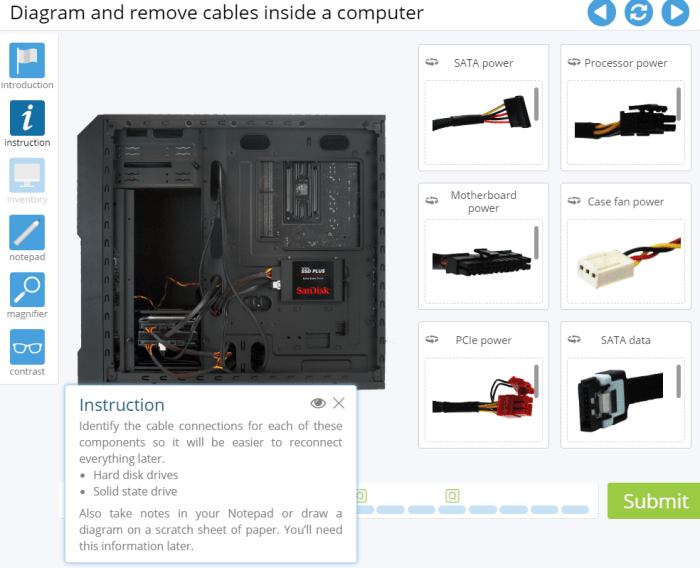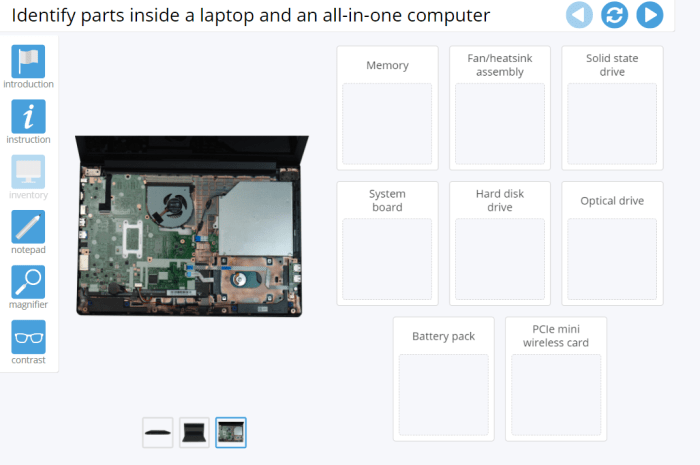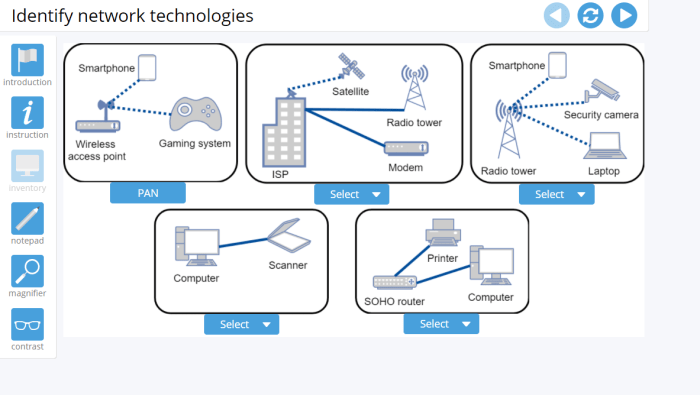Advanced hardware lab 5-5 troubleshoot a hard drive – Embark on an in-depth exploration of hard drive troubleshooting in Advanced Hardware Lab 5-5. This comprehensive guide delves into the intricacies of hard drive diagnostics, repair techniques, and advanced troubleshooting strategies, empowering you with the knowledge and skills to effectively resolve hard drive issues.
Through a systematic approach, we will uncover the common symptoms of a failing hard drive, providing a step-by-step roadmap for identifying and addressing these issues. Moreover, we will delve into the various causes of hard drive failure, examining both physical and logical factors that can lead to data loss.
Troubleshooting a Hard Drive in Advanced Hardware Lab 5-5

Hard drive failures are a common occurrence in the world of computing. In this article, we will discuss the symptoms, causes, and troubleshooting steps for hard drive issues. We will also provide a detailed case study of a hard drive troubleshooting scenario in Advanced Hardware Lab 5-5.
Common Symptoms and Indicators of a Failing Hard Drive
- Slow performance
- Unusual noises (clicking, grinding, or beeping)
- Frequent system crashes or freezes
- Data corruption or loss
- SMART (Self-Monitoring, Analysis and Reporting Technology) errors
Step-by-Step Guide to Identifying and Troubleshooting Hard Drive Issues
- Check the SMART status:Use a SMART monitoring tool to check the health of the hard drive. This will provide information about the drive’s temperature, read/write errors, and other indicators of potential failure.
- Run a disk check:Use the CHKDSK utility to scan the hard drive for errors. This will attempt to repair any logical errors that may be causing problems.
- Check the cables and connections:Ensure that the hard drive is properly connected to the motherboard and power supply. Loose or damaged cables can cause intermittent problems.
- Test the hard drive in a different computer:If possible, install the hard drive in another computer to see if the problems persist. This will help rule out issues with the motherboard or other components.
- Consider professional data recovery:If the hard drive is physically damaged or the data is corrupted, it may be necessary to seek professional data recovery services.
Hard Drive Failure Analysis, Advanced hardware lab 5-5 troubleshoot a hard drive
Hard drive failures can be caused by a variety of factors, including:
- Physical damage:Dropping or衝撃 the hard drive can cause physical damage to the platters or other components.
- Logical errors:Logical errors occur when the file system on the hard drive becomes corrupted. This can be caused by power outages, viruses, or software errors.
- Firmware issues:Firmware is the software that controls the hard drive’s operation. Firmware issues can cause the hard drive to malfunction or become unresponsive.
There are different types of hard drive failures, including:
- Mechanical failures:These failures are caused by physical damage to the hard drive’s components, such as the platters or the read/write heads.
- Read/write errors:These errors occur when the hard drive is unable to read or write data from or to the platters.
- Data corruption:Data corruption occurs when the data on the hard drive is damaged or lost. This can be caused by logical errors, firmware issues, or physical damage.
Common error messages associated with hard drive failures include:
- SMART errors:SMART errors are reported by the hard drive’s firmware and indicate a potential failure.
- I/O errors:I/O errors occur when the hard drive is unable to read or write data from or to the platters.
- File system errors:File system errors occur when the file system on the hard drive becomes corrupted.
FAQ Corner: Advanced Hardware Lab 5-5 Troubleshoot A Hard Drive
What are the common symptoms of a failing hard drive?
Common symptoms include slow performance, unusual noises, frequent system crashes, and data corruption.
How can I identify and troubleshoot hard drive issues?
Use diagnostic tools, check SMART data, listen for unusual noises, and run surface scans to identify and troubleshoot hard drive issues.
What are the different types of hard drive failures?
Hard drive failures can be mechanical, such as head crashes, or logical, such as file system corruption or bad sectors.
What are some advanced troubleshooting techniques for hard drive issues?
Advanced troubleshooting techniques include using firmware updates, specialized repair software, and data recovery tools.
How can I prevent hard drive failures?
Regular maintenance, including defragmentation, disk cleanup, and virus scans, can help prevent hard drive failures.

